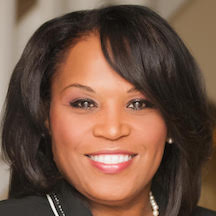 Morgan State University, the historically Black educational institution in Baltimore, has received approval from its board of regents to offer a host of new degree programs. The new programs will be added to the 126 academic programs currently offered at the university. The new degree programs must still be approved by the Maryland Higher Education Commission.
Morgan State University, the historically Black educational institution in Baltimore, has received approval from its board of regents to offer a host of new degree programs. The new programs will be added to the 126 academic programs currently offered at the university. The new degree programs must still be approved by the Maryland Higher Education Commission.
The board of regents gave its approval to a Ph.D./MBA program in higher education administration, an accelerated bachelor’s/MBA program in information systems, a bachelor’s/MBA program in human resources, and an online doctor of public health degree program.
“We are serious about our charge to develop unique and high-demand degree programs at Morgan that better position our graduates with the highly sought-after skills necessary to compete globally,” said David K. Wilson, president of Morgan State University.
 “Morgan State University is committed to creating new degree programs that uniquely prepare our students to be highly competitive for the careers of the future,” added Lesia L. Crumpton-Young, provost and senior vice president for academic affairs. “Our faculty are innovative in their approach to instruction and cutting edge when it comes to the development of academic programs. The addition of these new degrees enhances Morgan’s position as a market leader and a destination for degree attainment.”
“Morgan State University is committed to creating new degree programs that uniquely prepare our students to be highly competitive for the careers of the future,” added Lesia L. Crumpton-Young, provost and senior vice president for academic affairs. “Our faculty are innovative in their approach to instruction and cutting edge when it comes to the development of academic programs. The addition of these new degrees enhances Morgan’s position as a market leader and a destination for degree attainment.”
Dr. Crumpton-Young earned a bachelor’s degree, master’s degree, and Ph.D. in industrial engineering from Texas A&M University, where she holds the distinction of being the first African-American woman to receive a Ph.D. in engineering. She also holds an MBA from Tennessee State University.










This misguided Ph.D./MBA program in higher education administration initiative is another glaring example of misleadership under the guise of David Wilson. How on God’s green earth can David Wilson and his minions start ANOTHER program when many of the current graduate programs that need immediate fiscal, faculty, and material resources. It appears that David Wilson is more concerned about optics, symbolism as compared to substance.
you seem to be posting under every positive post about morgan under a different name. What’s your personal experience that makes you so negative?
Watch out, D., or you will be accused of subpar intellect.
Those who can’t play, teach and those who can’t teach, troll. I noticed the same pattern with this guy (Michael aka HBCU Watch) and my money is on either being a dropout or not getting accepted despite a 68% acceptance rate (now that would be humiliating). Nowhere did I get the feeling this is someone with any prominence in academia or familiar with what HBCUs actually do, what they are hoping to change, and how that transformation takes place in the real world.